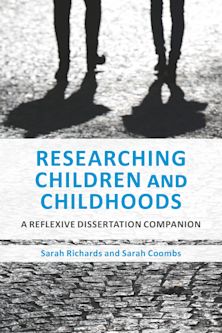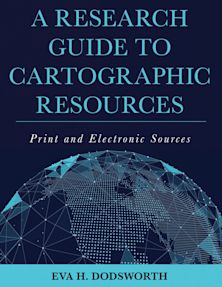The Rowman & Littlefield Handbook of Policing, Communication, and Society
The Rowman & Littlefield Handbook of Policing, Communication, and Society
This product is usually dispatched within 2-4 weeks
- Delivery and returns info
-
Flat rate of $10.00 for shipping anywhere in Australia
Description
The Rowman & Littlefield Handbook of Policing, Communication, and Society brings together well-regarded academics and experienced practitioners to explore how communication intersects with policing in areas such as cop-culture, race and ethnicity, terrorism and hate crimes, social media, police reform, crowd violence, and many more. By combining research and theory in criminology, psychology, and communication, this handbook provides a foundation for identifying and understanding many of the issues that challenge police and the public in today’s society. It is an important and comprehensive analysis of the enormous changes in the roles of gender in society, digital technology, social media, and organizational structures have impacted policing and public perceptions about law enforcement.
Table of Contents
Introduction: Policing Through the Lens of Intergroup Communication by Howard Giles, Edward R. Maguire, and Shawn Hill
Section I: Communicating Within Police-Relevant Agencies
Chapter 1: Police Culture: Us versus Them Communication by Shawn Hill and Howard Giles
Chapter 2: Doing Organizational Justice: The Role of Police Manager Communication by Scott Wolfe
Chapter 3: The Critical Role of Communication in Recruitment and Retention of Police Officers by Charlie Scheer and Jeremy M. Wilson
Chapter 4: Interagency Communication: Homicide Investigations By Joseph B. Kuhns and Shannon Messer
Section II: Police Communication with Diverse Communities
Chapter 5: Race, Policing, and Communication: Old Problems, Twenty-First Century Struggles by Travis Dixon, Marisa A. Smith, and Kristopher R. Weeks
Chapter 6: Intergroup Biases: Policing and Gender By Cara E. Rabe-Hemp and Amie M. Schuck
Chapter 7: Policing and LGBT+ Communities by Stephen Owen
Chapter 8: Policing Muslim Communities: The Importance of Procedural Justice in Communication and Engagement Activities by Kristina Murphy
Chapter 9: Law Enforcement Partnerships: Changing Communication Skills and Interventions in Response to People in Crisis by Ellen Scrivner
Section III: Communicating About Policing To and From the Community
Chapter 10: The Role of Communication Reform in Community Policing By Edward R. Maguire
Chapter 11: Speaking Truth from Power through Strategic Police Communication by Michael S. Scott
Chapter 12: The Role Of The Police In Fostering Community Resilience: A Communication Perspective by J. Brian Houston, Chandrika C. Collins, and Scott E. Branton
Chapter 13: “I See You”: The Mediation of Complaints Can Build Understanding and Trust by Bernard K. Melekian
Chapter 14: The Media and Our Perceptions of the Police by Matea Mustafaj and Jan Van den Bulck
Chapter 15: Social Media and Intergroup Encounters with “Cops”: Biased Samples, Echo Chambers, and Research Opportunities by Joseph B. Walther
Chapter 16: Newsworthiness of Police: Changes In Print Media Coverage of Police Post-Ferguson David H. F. Tyler and Edward R. Maguire
Section IV: Communication Dynamics Related To Specific Types of Crimes and Incidents
Chapter 17: Language in Traffic Stop Interactions: Patterns In Language Use and Recommendations for Fostering Trust and Compliance by Belén Lowrey-Kinberg
Chapter 18: Understanding the Communication Dynamics Inherent To Police Hostage and Crisis Negotiation by Amy R. Grubb
Chapter 19: Improving Law Enforcement Responses To Gender-Based Violence: Domestic and International Perspectives by Caroline Bettinger-López and Tamar Ezer
Chapter 20: Direct Communication in Focused Deterrence by David M. Kennedy
Chapter 21: Policing Hate Crimes and Terrorism in the Digital Age by Brian Blakemore
Chapter 22: Crowd Theory, Communication, and Policing By Clifford Stott, Matthew Radburn, and Leanne Savigar
Conclusion: New Directions in Policing and Intergroup Communication by Howard Giles, Shawn Hill, Edward R. Maguire, and Daniel Angus
Product details
| Published | 30 Sep 2023 |
|---|---|
| Format | Paperback |
| Edition | 1st |
| Extent | 424 |
| ISBN | 9781538189399 |
| Imprint | Rowman & Littlefield |
| Illustrations | 13 b/w photos; 5 tables |
| Dimensions | 256 x 177 mm |
| Series | Bloomsbury Handbooks |
| Publisher | Bloomsbury Publishing |
Reviews

ONLINE RESOURCES
Bloomsbury Collections
This book is available on Bloomsbury Collections where your library has access.

































